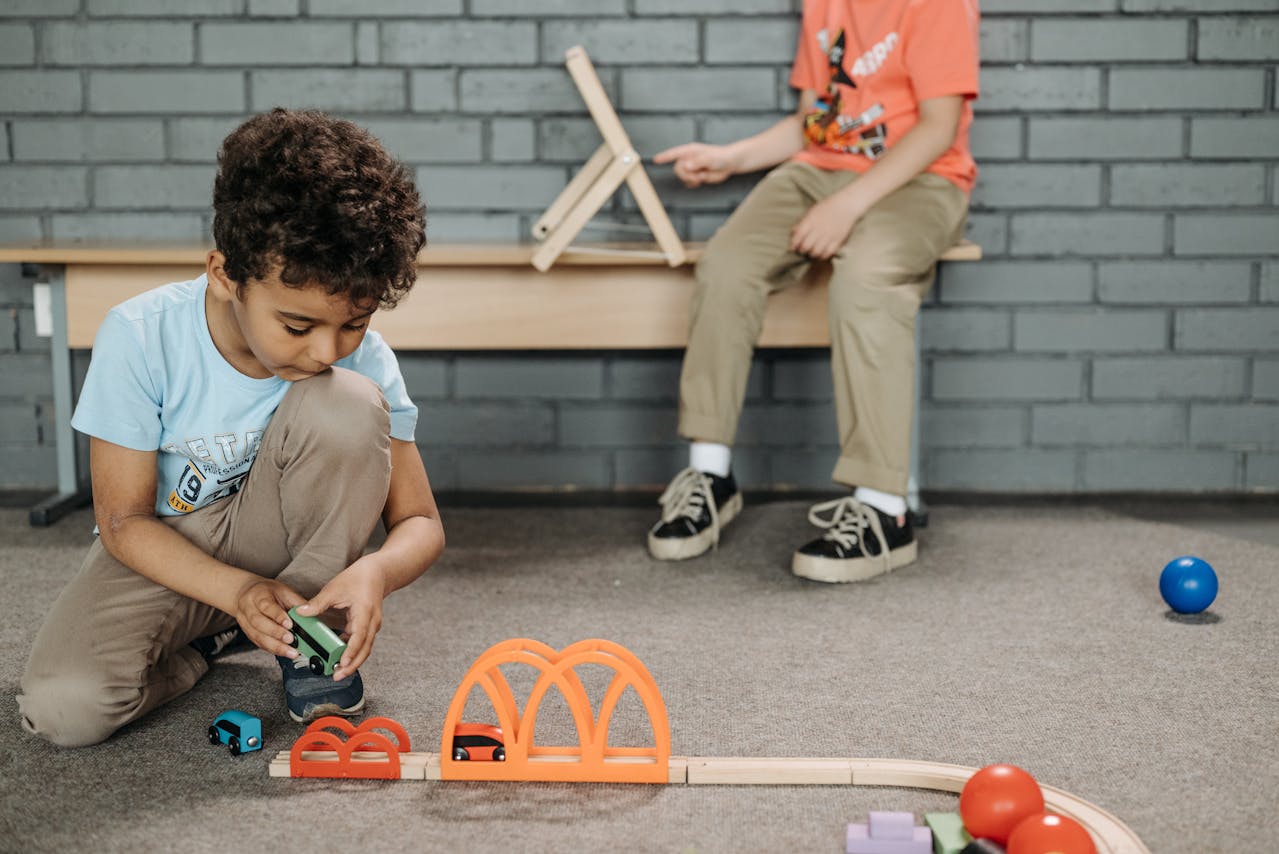Parenthood is an adventure that, in the early years, feels like it will last forever. Yet those precious moments, from ages 0 to 4, are fleeting. Blink, and suddenly the chubby toddler giggles, the late-night cuddles, and the endless questions are gone. If you miss out on this time, it’s gone forever. These early years are not just a phase—they are a peak experience of life that shapes your child’s development and, in many ways, defines your role as a parent.
In a world where time feels like a luxury, how do we make the most of these four transformative years? Let’s explore the core themes of nurturing, encouraging, and guiding your little ones during this critical period.
Embrace the Short Window of Time
The period between birth and age four is incredibly significant for a child’s development. It’s during this time that children form the foundation of their personality, their habits, and their view of the world. As a parent, you are not just a caregiver but the primary influence in shaping these early experiences.
In these four years, your child will go from complete dependence to a budding sense of independence. They will learn to walk, talk, and express themselves. They will ask endless “why” questions and find joy in the simplest things, like splashing in puddles or playing peek-a-boo. It’s easy to get caught up in the daily grind and miss these moments, but they are the moments you will look back on with nostalgia. Savor them, because the years fly by faster than you can imagine.
Encourage Exploration and Risk-Taking
Part of embracing these early years is encouraging your child to take risks and explore the world around them. It’s natural to want to protect your children from every bump and scrape, but shielding them too much can hinder their growth. Children learn through play, and sometimes that means falling down or making mistakes. It’s the motif of classic tales like Hansel and Gretel—too much protection can lead to unintended harm.
In the story, the children find a gingerbread house that seems perfect, but inside is a witch who represents the dangers of excess protection. The lesson is clear: you don’t want to do everything for your child. It’s important to step back and let them figure things out, even if it means they might stumble. This autonomy builds resilience, a crucial skill for navigating life’s challenges.
Beware of Over-Protection
The world has changed significantly in the past few decades. Gone are the days of large families and younger parents. Today, many parents are older and more resource-rich, which often leads to hyper-scheduling and overprotecting children. With fewer siblings, each child becomes more precious, and parents may feel the need to fill every moment with structured activities and enrichment.
While it’s understandable to want to provide the best opportunities for your child, over-scheduling can backfire. Children need unstructured time to play, explore, and learn on their own. This type of play is where creativity and problem-solving skills blossom. Instead of trying to orchestrate every moment, give your child the space to simply be. They will learn more from a few minutes of rough-and-tumble play than from a dozen structured classes.
Recognize the Value of Parenthood
Society often portrays children as a burden—something that interferes with our plans and ambitions. But what could be more important than raising the next generation? Children provide a unique opportunity for growth. They force us to look beyond our own needs and desires, teaching us the true meaning of responsibility and selflessness.
Parenthood is a path to maturity that few other experiences can offer. It shifts the focus from “me” to “we,” and it’s a profound change. When you have a child, you are no longer the center of your own universe. Instead, you have someone who matters more than anything else. This shift can be challenging, but it’s also deeply rewarding. It transforms us from self-centered individuals into caring, nurturing adults.
Your Job as a Parent: Socialize Your Child
By the age of four, your child should be well on their way to becoming socially adept. This doesn’t mean they have to be the life of the party, but they should have the basic skills needed to interact positively with others. Children who know how to share, take turns, and follow simple rules are more likely to be welcomed by their peers and supported by the adults around them.
Imagine taking your child to a playground. What do you want for them? You want them to be able to play with other kids and engage with the adults they encounter. If your child is difficult or disruptive because you’ve been afraid to set boundaries, they might face rejection from both children and adults. On the other hand, if they’ve learned how to cooperate and play well, they will be embraced by others, which is key for their ongoing social development.
Play Is Essential for Development
Children need to play—not just structured activities, but free, physical play that allows them to explore their limits. This kind of play is often missing in modern parenting, where parents are more concerned about safety and cleanliness. However, rough-and-tumble play, especially with fathers, teaches children how to understand their bodies, control their strength, and interact physically without causing harm.
Play also builds confidence. When children play with others, they learn important social cues and how to read emotions. They develop the ability to make friends, which is a crucial skill that will serve them throughout their lives. Kids who are fun to play with will always have friends, and those friendships are the building blocks of a happy, well-adjusted life.
Trust and Let Go
One of the hardest parts of parenting is learning to let go. Trusting your child to navigate small challenges on their own is tough, especially if you’ve experienced hurt or disappointment in your own upbringing. But it’s necessary. Children need to face minor setbacks and learn how to cope with them. It’s better for them to learn resilience in the small, safe environment of childhood rather than be overwhelmed by bigger problems later in life.
In the classic tale of Sleeping Beauty, the king and queen protect their child so completely that when she encounters her first difficulty, she falls into a deep sleep. The lesson here is that too much protection can leave a child unprepared for the real world. It’s okay for your child to experience small failures—they are the building blocks of success.
Teach Them How to Play Well with Others
Winning isn’t everything. It’s more important to teach your child how to be a good sport and play well with others. This mindset helps them develop character, which is more valuable than any single victory. The child who learns to cooperate, to share, and to support others will have more opportunities and friendships than the one who focuses only on winning.
Help your child understand that it’s not just about winning a game, but about how the game is played: playing well and enjoying the experience. This teaches them the broader lesson of life: success is not measured by individual victories, but by the quality of our relationships and how we contribute to the group.
Conclusion
The early years of parenting are a whirlwind of sleepless nights, joyful discoveries, and moments of pure love. They are also a critical time for setting the foundation for your child’s future. Embrace these years, encourage your child to explore and take risks, and trust them enough to step back when needed. Teach them how to play well with others, how to face challenges, and how to be resilient.
In the end, these four years are not just about raising a child—they are about shaping a human being who can thrive in the world. Make every moment count, because they go by faster than you think.



